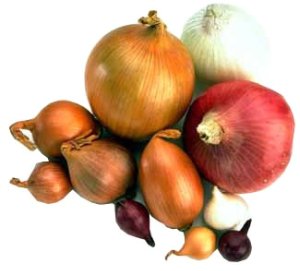Health benefits of lemon are due to many nourishing elements like vitamin C, vitamin B,phosphorous, proteins, and carbohydrates present in it. Lemon is a fruit that contains flavonoid, a composite that holds antioxidant and anti-cancer properties. It helps to preventdiabetes, constipation, high blood pressure, skin care, fever, hair care, dental care, indigestion and many other health problems. Studies conducted at the American Urological Association highlight the fact that lemonade or lemon juice can cure kidney stones by forming urinary citrate, which can prevent formation of crystals.
People use lemon to make lemonade by mixing lemon juice with water. Many people use lemon as a washing agent, as it can remove stains. Lemon can also repel mosquitoes. Drinking of lemon juice witholive oil helps to get rid of gall stones. Lemon is well known for its medicinal control and is used in many different ways. As per the results reported in a study of Annals of the Rheumatic Diseases, lemon provides human guard against inflammatory polyarthritis and arthritis.
Various health benefits of lemon can be described as under:
 Indigestion and Constipation: Lemon juice helps to cure problems related to indigestion and consitpation. Add a few drops of lemon on your dish (take care lemon does not go well with milk), and it will aid in difestion. Lemon acts as a blood purifier and a cleansing agent. A good drink post lunch or dinner is fresh lemon soda (also called freshlime soda in many places). The recipe is add lemon juice, some coldwater, soda, salts (common salt or rock salt) and sugar/honey (if you want it sweet), and mix it in a glass. You can also add some mintleaves or crushed fennel seeds for added taste. Drink this whenever you have a heavy lunch/dinner.
Indigestion and Constipation: Lemon juice helps to cure problems related to indigestion and consitpation. Add a few drops of lemon on your dish (take care lemon does not go well with milk), and it will aid in difestion. Lemon acts as a blood purifier and a cleansing agent. A good drink post lunch or dinner is fresh lemon soda (also called freshlime soda in many places). The recipe is add lemon juice, some coldwater, soda, salts (common salt or rock salt) and sugar/honey (if you want it sweet), and mix it in a glass. You can also add some mintleaves or crushed fennel seeds for added taste. Drink this whenever you have a heavy lunch/dinner.
Fever: Lemon juice can treat a person who is suffering from cold, flu or fever. It helps to break fever by increasing perspiration.
Dental Care: Lemon juice is used in dental care also. If fresh lemon juice is applied on the areas of toothache, it can assist in getting rid of the pain. The massages of lemon juice on gums can stop gum bleeding. It gives relief from bad smell and other problems related to gums.
In addition, lemon can also be used in regular cleansing of your teeth. You can look for a toothpaste containing lemon as one of the ingredients, or add a drop of lemon juice on your toothpaste. Some people also rub their teeth with the outer shell (the inner side touching your teeth) of a lemon after removing the juice. Take care - if you mouth starts burning, quickly put some water in your mouth.
Hair Care: Lemon juice has proved itself in the treatment of hair care on a wide scale. Lemon juice if applied on the scalp can treat problems like dandruff, hair fall and other problems related to hair and scalp. Lemon juice if applied on the hair, gives a natural shine to hair.
Skin Care: Lemon juice, being a natural antiseptic medicine, can participate to cure problems related to skin. Lemon juice can be applied to stop sun burn also. It helps to get relieved from bee sting as well. Lemon juice can also be applied on the skin for acneand eczema problems. It acts as an anti ageing remedy and can remove wrinkles and blackheads. Drinking of lemon juice mixed with water and honey brings glow to the skin. If you search thoroughly in the market, you will find some soaps containing lemon juice also.
 Burns: Lemon juice if applied on the areas of burns can fade the scars. As lemon is a cooling agent, it reduces the burning sensation on the skin.
Burns: Lemon juice if applied on the areas of burns can fade the scars. As lemon is a cooling agent, it reduces the burning sensation on the skin.
Internal Bleeding: As lemon has antiseptic and styptics properties, it can stop internal bleeding. You can apply lemon juice on small cotton and place inside to nose to stop nose bleeding.
Rheumatism: Lemon is also a diuretic and can treat rheumatism and arthritis. It helps to flush out bacteria and toxins out of the body.
Weight Loss: If a person takes lemon juice mixed with lukewarm water and honey, it can reduce the body weight as well.
Respiratory Disorders: Lemon juice assists in curing respiratory problems, along with breathing problems and revives a person suffering from asthma. Lemon, being a rich rich source of vitamin C, helps in dealing with respiratory disorders.
Cholera: The diseases like cholera or malaria can be treated with lemon juice, as it acts as a blood purifier.
Foot Relaxation: Lemon is an aromatic and antiseptic agent and is useful in foot relaxation. Add some lemon juice in warm water and dip the foot in the water to get foot relaxation.
Corn: Lemon juice can dissolve lumps on the skin. It can be applied at the places where the skin has been hardened up. Drinking of lemon juice with water can facilitate the patient to get rid of stones.
Throat Infections: Lemon is an excellent fruit that aids in fighting problems related to throat infections as it has an antibacterial property.
High Blood Pressure: Drinking lemon juice is helpful for people suffering with heart problems as it containspotassium. It controls high blood pressure, dizziness, nausea as provides relaxation to mind and body. It reduces mental stress and depression.
Lemon: Nature’s Boon - Lemon has proved to be nature’s boon to the entire mankind. It gives solution to many health related problems. It has its own set of antiseptic and natural medications. Make sure you eat atleast one-fourth or half lemon daily.












